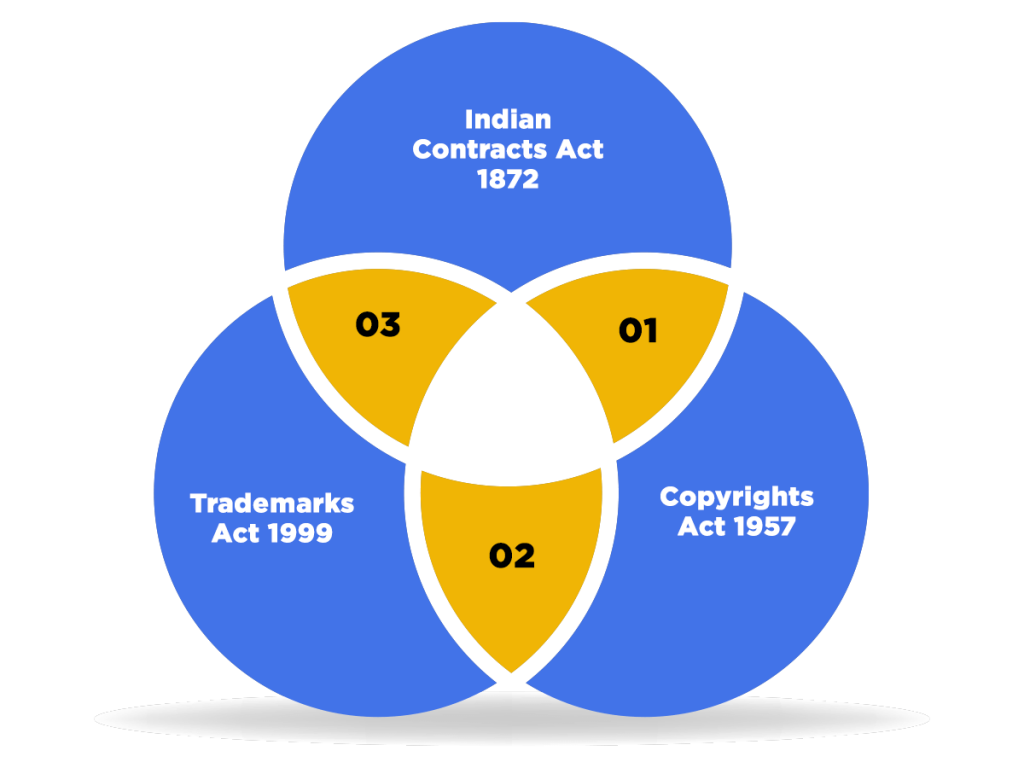Is it Possible to Draft Joint Venture Agreement Between Two Companies?

Shivani Jain | Updated: Nov 02, 2020 | Category: Agreements, Business, Change in Business
The term “Draft JV Agreement” denotes the format of a legal document wherein two or more business entities associate to do business or commence an economic activity altogether. In other words, Joint Venture is a technical and financial collaboration between the companies for the fulfillment of some projects.
In this blog, we will discuss whether it is possible to Draft JV Agreement between two companies or not.
Table of Contents
Concept of Joint Venture Agreement
The term “Joint Venture Agreement” signifies a legal document that acts as a basis for the entities that decides to undertake economic activities by combining their operations.
Further, in a JV Agreement, the parties agree to run a business with common intention but without incorporating a new business entity. Also, the companies can build a new entity by contributing the equity, revenue, control, expenses of the entity in the proportion of their capital contribution.
Who Can be Party to Joint Venture Agreement?
The ones eligible to become a party to the JV Agreement are as follows:

- Company
- Individual
- Partnership Firm
Laws Applicable to Joint Venture Agreement
The laws applicable to the Draft JV Agreement are as follows:

- Indian Contracts Act 1872[1]
- Copyrights Act 1957
- Trademarks Act 1999
Basic Features of JV Agreement
The basic features of the Joint Ventures Agreement are as follows:

- Partners contribute money, efforts, skills, knowledge, property, and other assets towards a common undertaking.
- It includes the right of management and mutual control over the property used in the enterprise.
- Provides the right to share profit and loss in a property.
Need for Joint Venture Agreement
Whenever, companies lack in some aspects, such as knowledge, technology, assets or market reach, they tend to get involved in joint ventures with other business entities or company as they are unable to achieve its objective on its own.
Further, the collaboration through JV agreement allows the first party to have easy access to the capital and resources of the other party that too, without any expenditure for obtaining it. In India, the Joint Ventures are normally formed with one non-resident company/ individual, who collaborate to incorporate an Indian Public or Private Limited Company with the mutual contribution in the share capital.
Clauses in the Draft JV Agreement
The clauses in the draft JV Agreement are as follows:
- Object of the Joint Venture Agreement.
- Scope of the JV Agreement.
- Clause of Equity Participation of both the parties if the joint venture is an equity based agreement formed by the local and foreign investors and is an agreement to the future issue of capital as well.
- Financial Arrangement Clause between both the parties.
- Composition of the Management and Board Agreements.
- Specific Obligations.
- Provisions for the Distribution of Profits and Losses.
- Transferability of Shares in some situations.
- Termination Clause for the exit of the parties.
- Restrictive Covenants for both company and participants.
- Appointment of CEO (Chief Executive Officer)/MD (Managing Director).
- Clause of Anti-Compete.
- Confidentiality Clause.
- Indemnity Clause wherein both the parties involved may indemnify each other against the event of negligence, and violation of the provisions of the JV agreement.
- Duration of the Agreement.
- Dispute Resolution Mechanism.
- Applicable law.
- Force Majeure, etc.
Types of Joint Ventures in India
The different types of Joint Ventures prevalent in India are as follows:
Equity Based Joint Venture Agreement
In this type of Joint Venture Agreement, the parties involved decide to pool in their investments and other resources to establish a new business entity.
For example, a Foreign Company can start a business in India by signing a JV Agreement with some Indian Business Partner. By this means, the said Indian Business Partner will acquire both technology and financial assistance from its Foreign-based partner.
Contract Based Joint Venture Agreement
In this type of JV Agreement, there is no need to create any new and separate legal entity. The parties involved just enter into the agreement to work on a project.
For Example, in a franchise operation, the owner and the franchisee enters into a JV Agreement for only one project, while they both continue to carry out their individual work.
Factors to Consider While Drafting a Joint Venture Agreement
The factors to consider while drafting a JV Agreement are as follows:
- In depth research regarding the activities and operations of other businesses.
- Conduct SWOT (Strengths, Weaknesses, Opportunities, and Threats) Analysis of the business.
- Compare the Method of Working of other businesses.
- Analysis Potential of the Joint Venture Partners.
- Must consider the opinions given by the employees.
Process to Draft Joint Venture Agreement
The steps involved in the process to draft JV Agreement are as follows:

Choose the Right Partner
The first and foremost step towards the process to draft JV Agreement is to choose the right partner. Further, while deciding the partner, the applicant must completely analyze whether the business culture and operation of the proposed partner fits with its organisation or not.
Sign MOU
After deciding the right partner, the applicant needs to sign a Memorandum of Understanding or Letter of Intent with the proposed partner. The Memorandum of Understanding will lay down the basis of the JV or Joint Venture Agreement. Also, it serves as a basis of intention for the parties entering into the agreement.
Consult Experts
Now, in the next step, the applicant must consult expert professionals for the drafting of both MOU and JV Agreement.
Draft JV Agreement
The draft JV Agreement must include the details as follows:
- Type of Firm
- Sources of Funding
- Stakes of Shareholders
- Contribution made in the Company.
- Contribution in the Intangible Assets.
- Details on Exit Strategy
- Dissolution Clause, etc.
Name Your Joint Venture Agreement
In this step, the applicant needs to give a name for the draft Joint Venture Agreement format.
Register Company
The last and the final step after the drafting of the Joint Venture Agreement is to register the said Private or Public Limited Company and the AOA (Articles of Association).
Conclusion
In a nutshell, we can conclude by stating that, YES it is possible to draft a Joint Venture Agreement or JV Agreement between two companies. Also, a JV agreement offers a variety of perks and benefits to the businesses involved as parties in the agreement.
Further, joint ventures provide companies and entities with a platform to join hands and pool their finances, knowledge, ideas, skills, and resources to develop a particular project.
However, all this is possible only if there is a well-drafted JV Agreement that governs the parties involved in the agreement. That means any discrepancy in the joint venture agreement may lead to the termination or dissolution of the JV agreement.
For any other details, contact us – Swarit Advisors.
Sample Format of Joint Venture Agreement
JOINT-VENTURE-AGREEMENTAlso, Read: What are the Recent Trends in International Business Environment?














